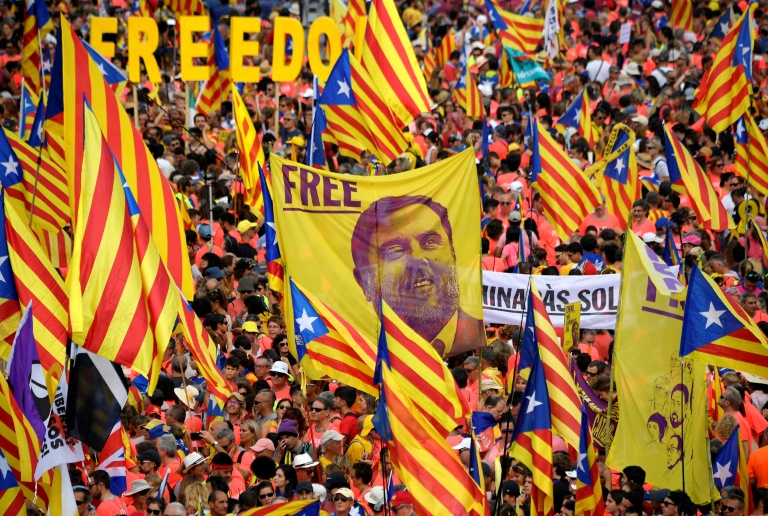Spain on Tuesday pardoned nine jailed Catalan separatists behind a failed 2017 independence bid, aiming to break a deadlock over the political crisis in the wealthy northeastern region.
Prime Minister Pedro Sanchez said he hoped the move would draw a line under past confrontations with Catalonia’s separatist-led regional government and open the way for talks.
“With this act, we want to open a new stage of dialogue and reconciliation and close once and for all the division and confrontation,” he said.
The decision to grant clemency to nine separatist leaders who were serving long prison sentences was taken to “re-establish coexistence and harmony within Catalan society and Spanish society as a whole,” he added.
The separatists were convicted over a banned referendum in October 2017 that was marred by police violence and followed by a short-lived declaration of independence, sparking Spain’s worst political crisis in decades.
Several fled abroad but 12 others were tried and convicted, with three-quarters of them handed prison terms of nine to 13 years.
Sanchez said they were partial pardons, meaning all nine would be banned from holding public office, and the clemency would be conditional on them not committing “a serious crime”, which a government source said would be for a period of three to six years.
The pardons, which will take the form of a royal decree, will be published in the official government bulletin on Wednesday, the source said.
The prisoners are widely expected to be released later the same day.
“The Spanish government has taken this decision because it is the best for Catalonia and for Spain,” Sanchez said.
– ‘Independence through dialogue’ –
But the decision has been attacked by Spain’s right-wing opposition as well as by many in the pro-independence camp who want a full amnesty that would allow those who fled abroad to return home.
Analysts have also warned it is a risky political gamble that may help calm tensions but won’t solve the years-long turmoil over the separatist crisis, which has left Catalonia sharply divided.
But Madrid is hoping the move will give impetus to the upcoming talks with the Catalan government of Pere Aragones who is more open to dialogue than his hardline predecessor.
Aragones and ERC leader Oriol Junqueras — the prisoner serving the longest sentence of 13 years — have recently taken steps towards Sanchez by distancing themselves from the path of unilateralism.
“We will devote all our efforts to make it possible in this new stage that negotiation be the basis for resolving the conflict,” said Aragones, who took over as Catalan leader a month ago.
“The best way to achieve (independence) is through dialogue, negotiation and agreement.”
– A divisive measure –
When the separatists were sentenced in October 2019 by Spain’s Supreme Court, the ruling triggered an outcry across Catalonia, with thousands hitting the streets in protests that sometimes turned violent.
Sanchez acknowledged the pardons would also affect “hundreds of thousands of Catalans who feel solidarity with them” and also many others across Spain “who didn’t support their actions but believe they’ve served enough time”.
More than two-thirds — 68 percent — of Catalans approved of the pardons, an Ipsos poll found.
But the same poll found that 53 percent of Spaniards were against the move, which has also been opposed by Spain’s Supreme Court and the right-wing opposition.
In the coming weeks, Sanchez will meet for the first time with Aragones, who has pledged to push for an amnesty and a new referendum on self-determination — this time with Madrid’s approval.
But both matters are out of the question for the Spanish government.
“Catalonia without Spain would not be European, nor prosperous,” said Sanchez.
“Spain without Catalonia simply would not be Spain, just as Catalonia without the rest of Spain would not be Catalonia.”











